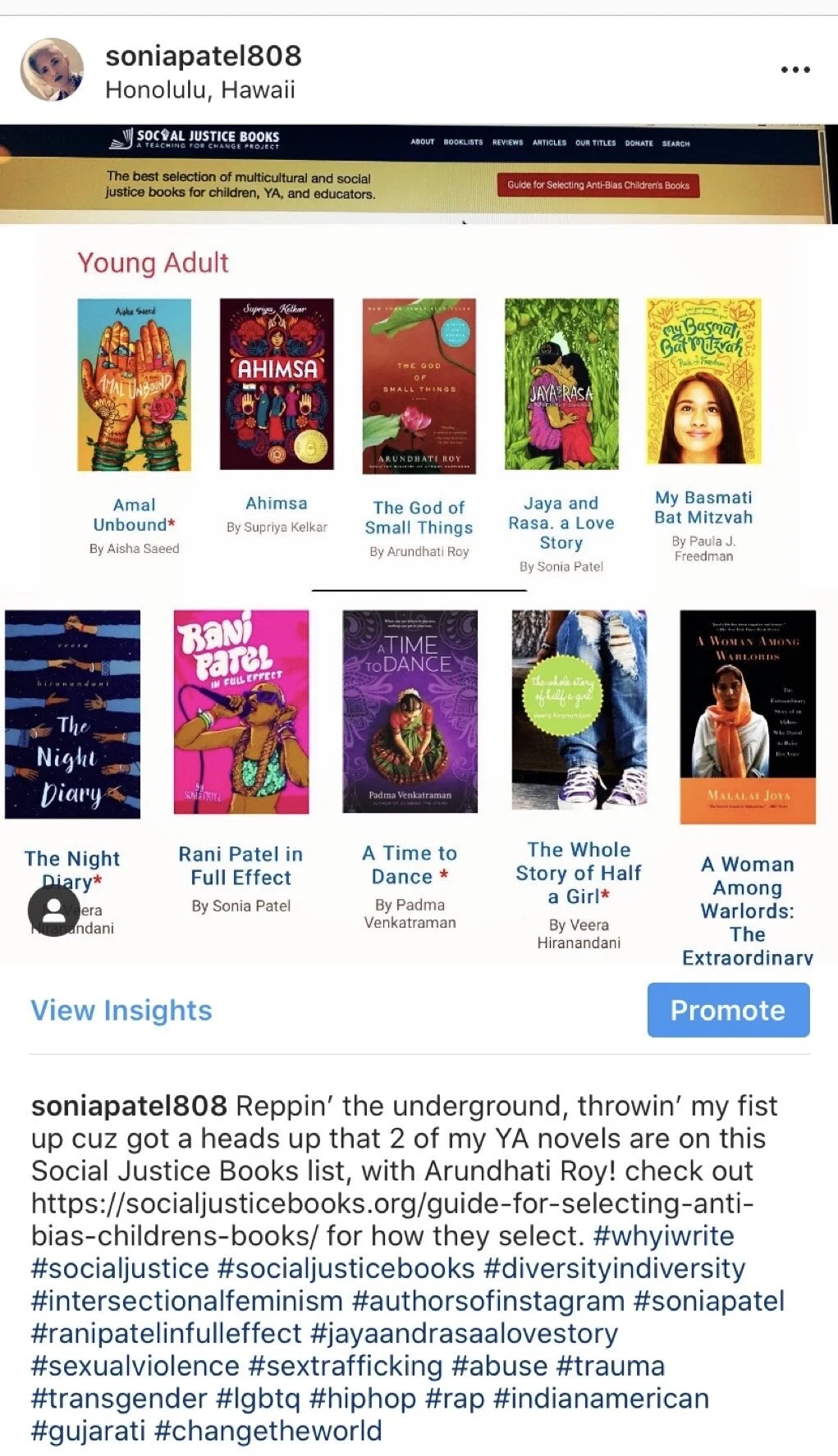Cultural appropriation is generally defined as the dominant culture stealing aspects of a minority culture, such as fashion, music, traditions, symbols, etc. It is often viewed as harmful, especially since it stems from colonialism and oppression.
Personally, I think the concept is taken too far sometimes. It’s not that I’m down with the disrespectful stealing of another’s culture, but I think the sharing of cultures can be beneficial. It can promote tolerance and empathy if done right.
I’m the first person in my Gujarati immigrant family to be born in America and honestly, there are times I feel Indian, times I don’t. There are times I feel American, times I don’t. And the culture I most identify with is hip hop culture, a culture born out of the black experience in New York City. Hip hop culture has influenced me in many positive ways and at times even saved my life. I’m thankful to hip hop, so much so that I gave it a central role in my debut young adult novel, Rani Patel In Full Effect. I intend no disrespect to the founding black culture, only gratitude. Hopefully, I succeeded in giving it the mad props it deserves.
I don’t relate to most aspects of my Gujarati Indian culture. But I do relate to yoga, a Hindu tradition that encompasses physical, mental, and spiritual practices. I focus on the physical and mental aspects in a Westernized way in a Western studio. For me, yoga, like hip hop, provides tremendous relief to the internal anguish that still plagues me given my family of origin issues. This, and because I’m a psychiatrist, I’m overjoyed that many people in the West practice yoga and find it helpful.
Not all Indians feel like that. There are Indians who consider westernized yoga to be harmfully appropriated, especially given the high commercialization of it and how far removed it’s become from ancient Indian philosophy and purpose.
More recently, I’ve felt the sting of this cultural appropriation in my yoga classes. But for me, it’s quite specific. Usually, I’m the only Indian person in class and when I hear practitioners, mostly women, talking about being on “detox juice cleanse diets,” “going vegan,” “deciding to quit all carbs,” or praising each other on weight loss, I feel angry. I mean do these people know that 15% of India’s population is undernourished? Do they know that most Indians in India are lacto-vegetarian? Do they know that it’s highly disrespectful when they talk about bodies like pieces of meat (which of course, they don’t eat)? Do they know that they’re perpetuating misogyny? I wonder if they talk to their children, especially their daughters, like that. More than angry, that makes me sad and scared for the future.
The worst was when a frequent practitioner began reeking of ketones during and after class. I know the smell from medical school and residency training and from my work with eating disordered patients. It’s not normal. Simply put, it represents the body breaking down. It can be dangerous, even fatal. It was common knowledge that this particular practitioner had been taking 3 classes a day. Every single day. Without eating in between. And not eating very much of anything all day. Personally, I found this to be the ultimate in disrespectful appropriation of yoga. I’m no expert on yoga philosophy, but I know for sure that it’s not meant to be harmful. And then how healing is it if a fellow practitioner dies in class because privilege allows them to take 3 classes a day and choose not to eat?
I expressed my concerns to the practitioner and the studio. I’m happy the studio made positive changes to their policies to assist practitioners in making more balanced, and less deadly, yoga choices.
I’m still all about sharing culture, but not about letting entitlement and privilege turn someone’s culture into something toxic.



